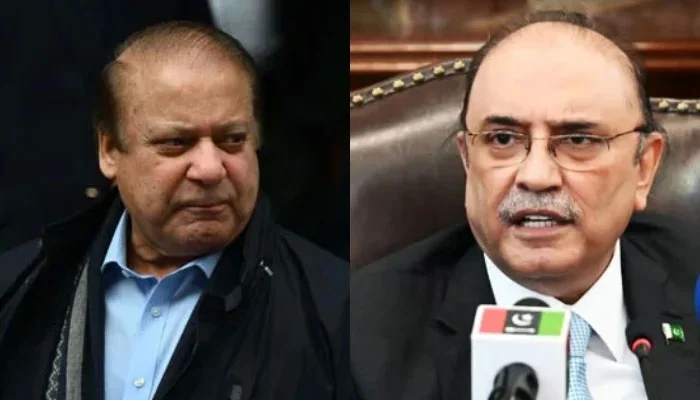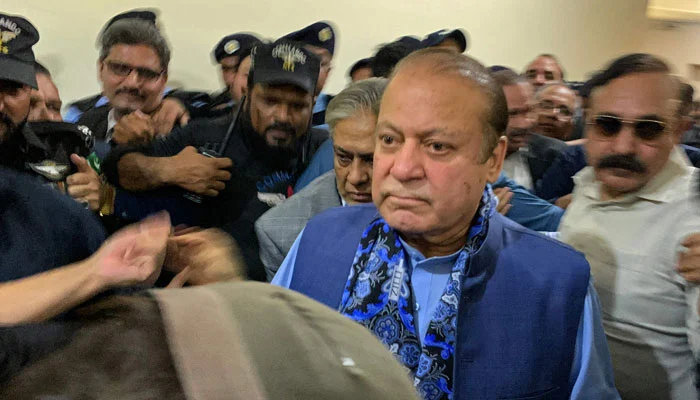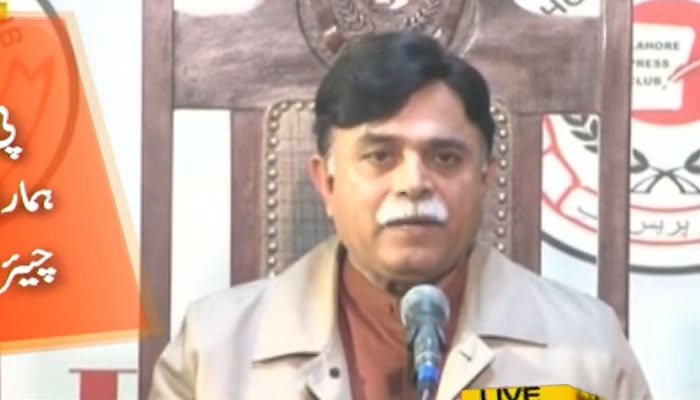In recent political developments in Pakistan, it has been reported that leaders from different political parties are engaging in discussions and meetings, with a focus on national unity, economic prosperity, and the upcoming general elections. The leaders include Nawaz Sharif, the leader of the Pakistan Muslim League (Nawaz) (PML-N), and Asif Ali Zardari, the former President of Pakistan. These developments underscore the evolving political landscape in Pakistan and the shifting dynamics among key political figures.
Nawaz Sharif, who is currently in Lahore, has recently extended an invitation for a meeting with Asif Ali Zardari, which is expected to take place soon. This interaction reflects a shared commitment to preserving the integrity of the state, and it signals a willingness to collaborate for the betterment of Pakistan. Both leaders have expressed a consensus on the need for collective efforts to address the challenges facing the nation.
The Pakistan Muslim League (Nawaz) has seen renewed political activity at its central secretariat. Nawaz Sharif, the leader of the PML-N, visited the party’s headquarters for the first time in four years, highlighting the significance of the occasion. During his visit, a consultative meeting was held to discuss the prevailing political and economic situation in the country, and important decisions were made. Nawaz Sharif emphasized the need to transform Pakistan into an “Asian Tiger,” with economic development being a top priority. His remarks underscore the party’s commitment to promoting economic prosperity and development as a fundamental element of their political agenda.
On the other side of the political spectrum, Asif Ali Zardari, the former President of Pakistan, has expressed optimism about the upcoming general elections scheduled for February 8. He has suggested that the sun of victory will rise on that day, carrying a message of triumph for Bilawal Bhutto Zardari, the Chairman of the Pakistan People’s Party (PPP). Asif Ali Zardari’s statement is indicative of the PPP’s strong confidence in its prospects in the upcoming elections.
Faisal Karim Kundi, a senior leader of the PPP, has announced the party’s decision not to accept any selection this time, highlighting their commitment to democratic principles and the importance of free and fair elections. This stance aligns with the PPP’s dedication to upholding democratic norms and values.
Furthermore, Maryam Nawaz, a prominent leader of the PML-N, has encouraged her party to refrain from indulging in conspiracy theories and instead focus on preparations for the upcoming elections. Her call for concentrated efforts indicates the party’s intent to participate actively and constructively in the democratic process.
Saad Rafique, a leader of the PML-N, has debunked rumors of any backdoor electoral deal, emphasizing that such speculations are baseless. This clarification is essential in maintaining transparency and public trust in the electoral process.
Khawaja Asif, another member of the PML-N, has called for a level playing field for all political parties, suggesting that all parties should be given equal opportunities in the upcoming elections. This call for fairness underscores the importance of creating an environment where democratic principles are upheld and respected.
In another significant development, the central secretariat of the PML-N witnessed increased political activities, signaling the party’s renewed commitment to political engagement. This engagement includes discussions with other political entities and leaders to explore avenues of cooperation.
Shahbaz Sharif, the President of the PML-N, initiated discussions with leaders from the United National Movement. This interaction signifies a willingness to collaborate on political and electoral matters. It is expected that this dialogue will provide an opportunity to discuss the current political landscape and the upcoming elections.
These political developments in Pakistan reflect a changing political landscape where leaders from different parties are engaging in discussions and meetings to address the nation’s challenges collectively. The upcoming general elections on February 8 have generated a sense of urgency and political activity. The leaders’ emphasis on economic prosperity, democratic principles, and a level playing field for all political parties indicates a growing commitment to promoting democratic values and national unity in Pakistan. The evolving dynamics among these key political figures will continue to shape the political landscape in the run-up to the elections and beyond.



